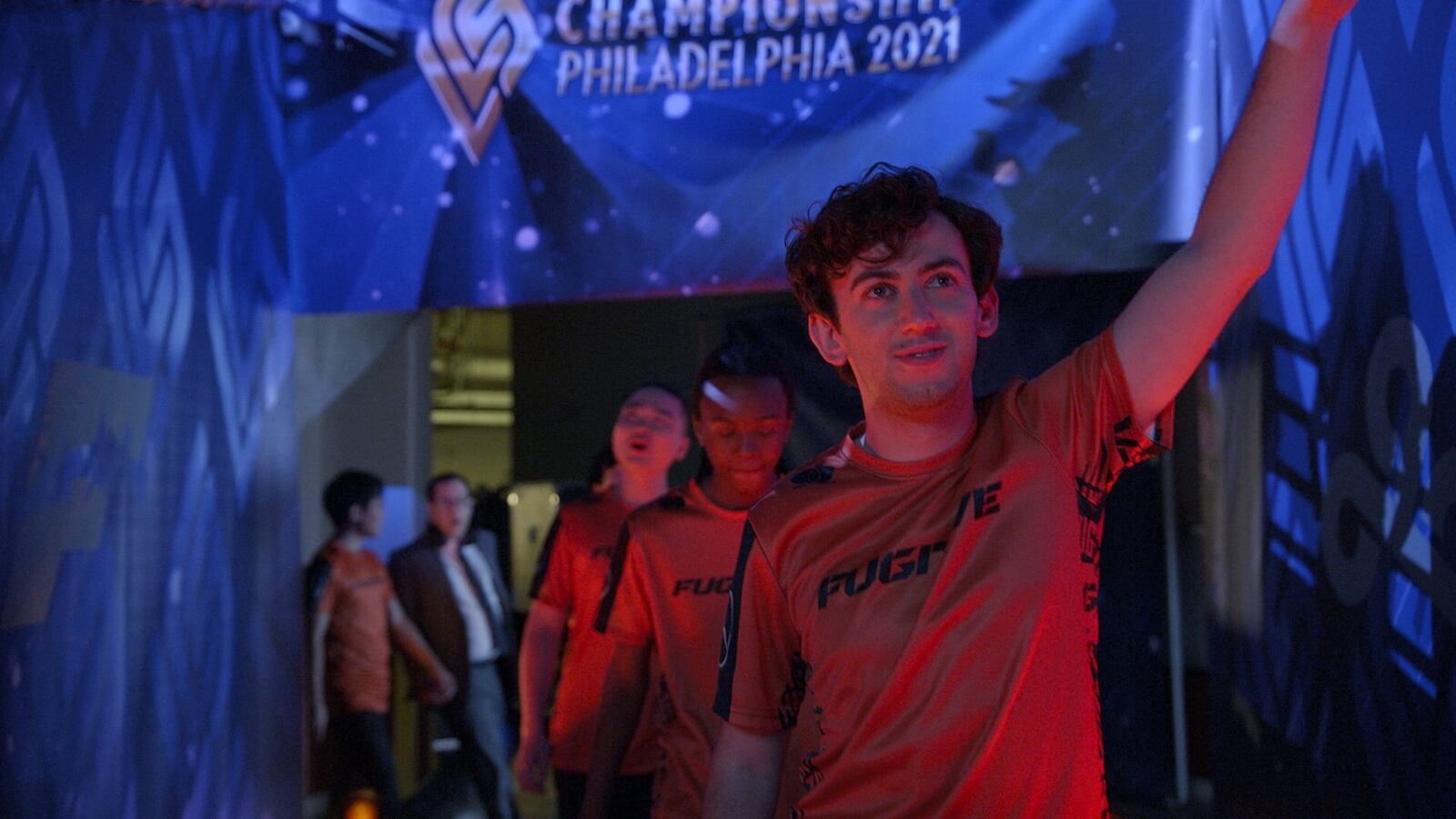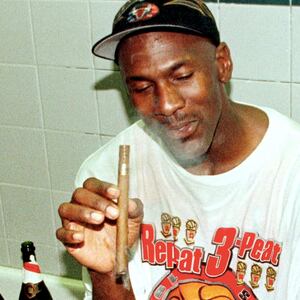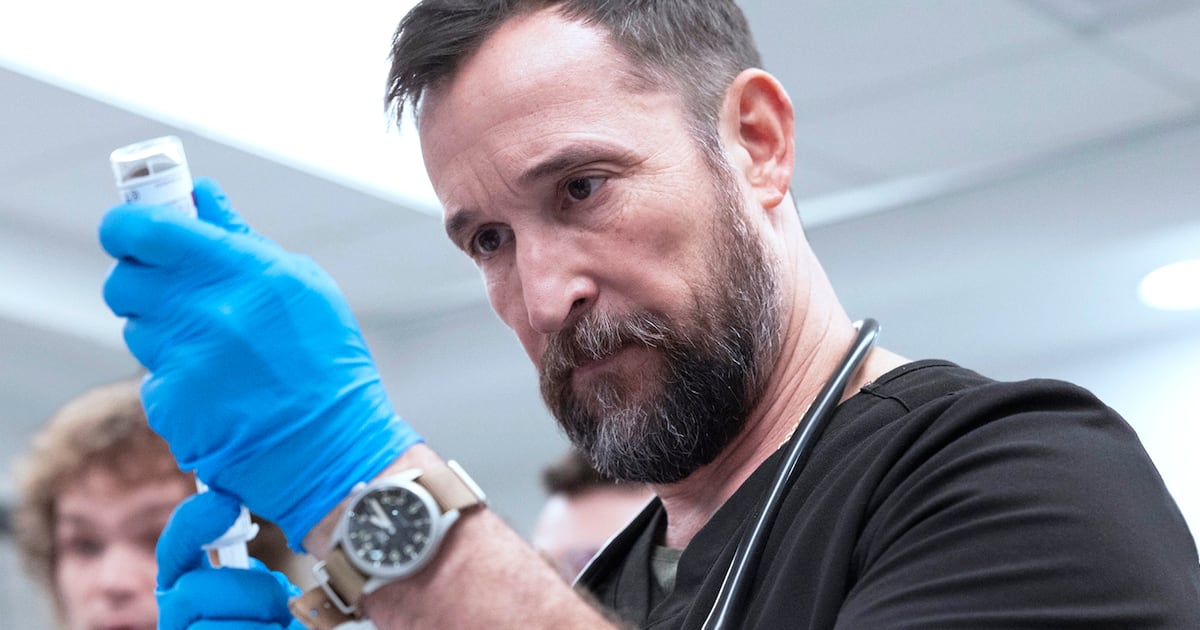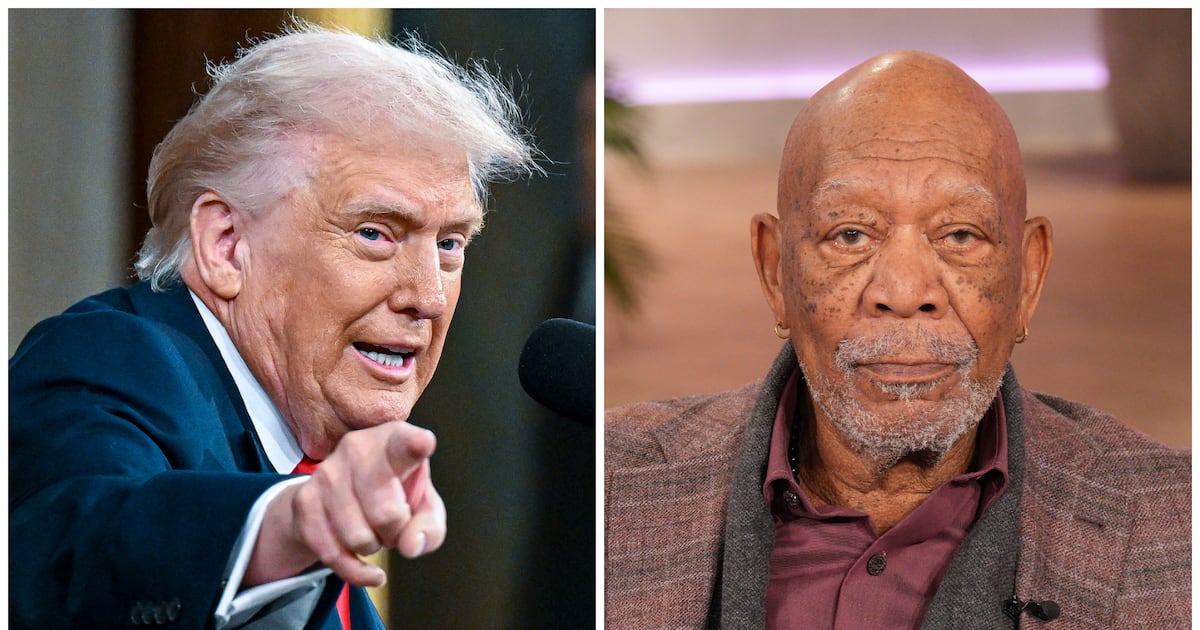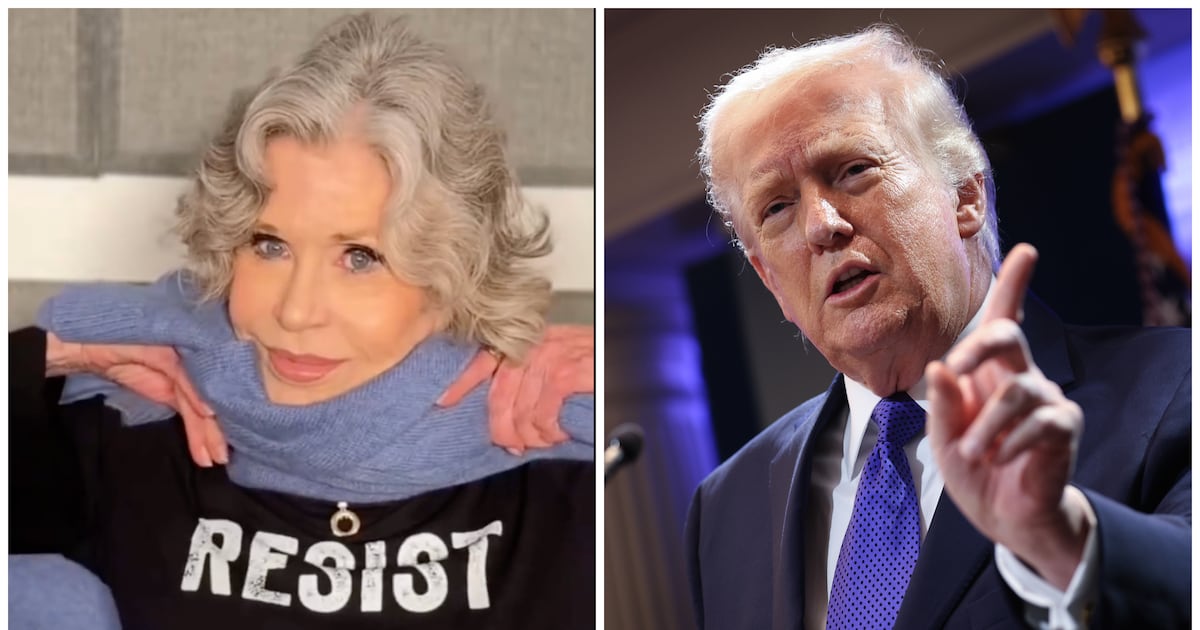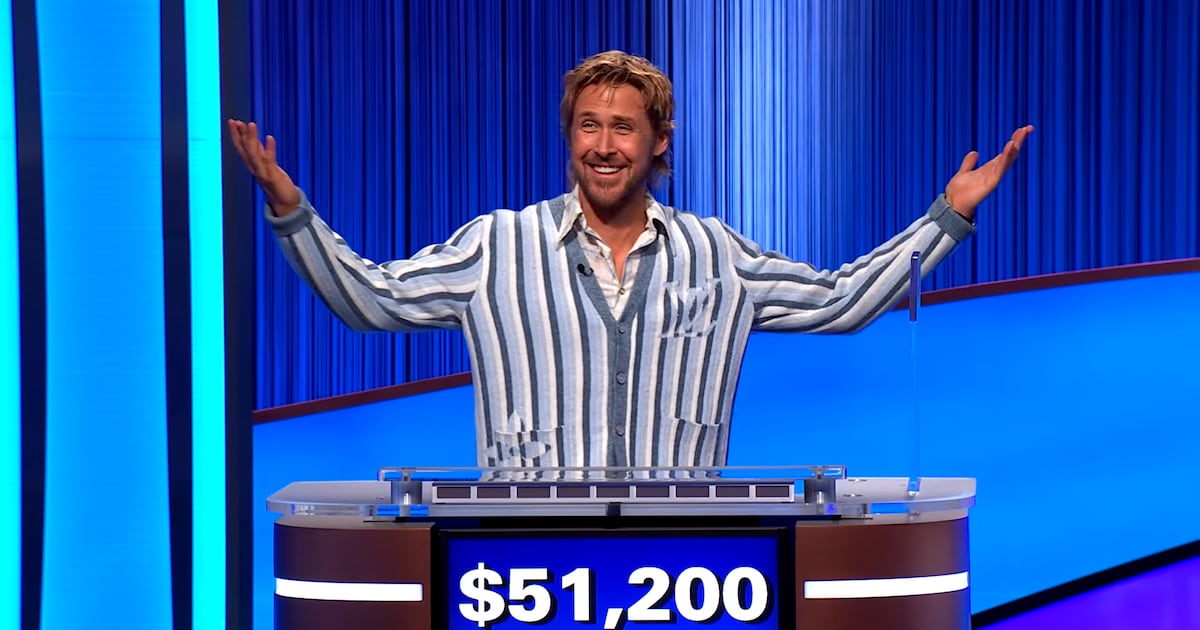Here are some familiar sports stories: A scrappy crew of underdogs comes together to win the trophy, proving everyone wrong about them. The hotshot loses their cool as the new guy threatens to overtake them as star player. Internal and external pressure calls the team’s winning streak into question. The team’s biggest name refuses to retire, ends up embroiled in a murder trial that still ranks as one of the most shocking scandals of our time, or both.
Players is Paramount+’s fantastic mockumentary series, the latest project from the creators of American Vandal. That series, which ran for two seasons on Netflix, was a meticulous recreation of the booming true-crime drama. You’d be forgiven for believing it was an actual docuseries about a real incident at first—despite that (very fictional) incident being someone spray painting 27 penises on cars in a high school parking lot. (Season 2 revolved around the mystery of the “Turd Burglar.”) Players replicates that same, uncanny formula, applying it to an entirely different universe.
This mockumentary follows (almost) all those aforementioned sports tropes to the letter. (There’s thankfully no OJ Simpson analogue on this show.) But the athletes here aren’t basketball champs or soccer stars: Their sport of choice is the online multiplayer game League of Legends.
As any esports fan knows—and there’s millions of them—League of Legends has as much drama as any offline sport does and then some. As the beleaguered, fictional esports team Fugitive seeks to win their first-ever League Championship Series trophy, the tension ramps up to almost heart-stopping levels. Throughout its first 10-episode first season, the dramedy sells us on the idea that the story of Fugitive is as legendary as that of the 1980 U.S. Olympic Hockey Team, 1995-’96 Chicago Bulls, or 2016 World Series.
Except there’s one big difference between Players and the unforgettable real-life victories that inspired it, other than the obvious one.
(Warning: Spoilers ahead for the season finale of Players.)
In the season’s stunning finale, which dropped last Thursday, Fugitive wins the LCS trophy… but then loses almost immediately in the World Championship. Its newest, strongest player abruptly quits in rage, joining one of Fugitive’s rival teams—leaving Fugitive in a state of disarray, despite that big win.
It’s a shocking subversion of sports stories’ typically happy endings. But for Players’ co-creators and star, the season needed to finish on this anticlimactic, heartbreaking note.
“[The show] is more about the relationship between these two guys, who have to learn to pull together, to trust each other, in order to achieve greatness,” said Tony Yacenda, in an interview with The Daily Beast. “[Fugitive] just winning felt like it was an unsatisfactory way to explore what it means to really want to achieve true greatness.”
Those two guys are Creamcheese (Misha Brooks), Fugitive’s longest-tenured player, and Organizm (Da’Jour Jones), a newbie recruit whose skills intimidate Creamcheese. They’re the backbone of the team as well as Players; Organizm’s unflappable demeanor and disinterest in Fugitive’s status quo irks Creamcheese, who’s already deeply insecure. It’s Organizm who abandons the team in the finale, right after he and Creamcheese have finally bonded after a full season of being at each other’s throats.
“To Creamcheese, winning the LCS with Organizm is the kind of closure he was looking for,” Yacenda said. “Everything else was kind of an epilogue. And for Organizm, this is just the start of a long career. Winning North America is winning a weaker region—he’s not playing the best in the world. He still has ambitions so far beyond this.
“We structured it so that the championship was the goal for the whole season, and it feels like closure through the lens of Creamcheese. And then we realized that this relationship is based on a shared desire to win, and all of a sudden their goals aren’t aligned anymore.”
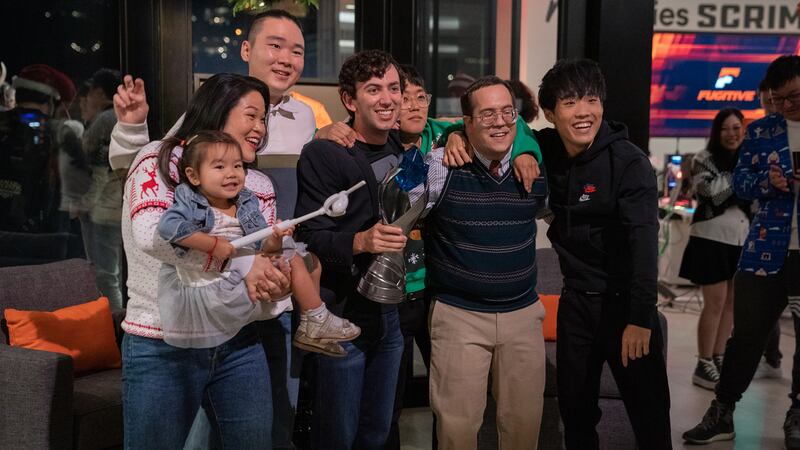
The remaining members of Fugitive, celebrating their win.
Paramount+Co-creator Dan Perrault likens Creamcheese and Organizm’s relationship to a love story, with Organizm’s abrupt departure like a breakup.
“I think that one thing that drove their initial difficulties in getting along with each other, especially on Creamcheese’s side, is that he saw a lot of Organizm in himself, or at least saw the ideal version of himself in the young Organizm,” he said. “I think it took awhile for Creamcheese to admit that [Organzim] was better and to admit that they actually have a lot in common.”
For Players to throw all this away so quickly hurts, especially after getting so invested in Creamcheese’s growing closeness to someone as emotionally closed-off as Organzim. But the split, and the emotional talking-head segments in which Organizm and Creamcheese try to mask their pain about it, felt like the right call to Brooks, a.k.a. Creamcheese himself.
“Seeing Creamcheese be satisfied with winning the Championship and Organizim not satisfied, to me, makes me feel like it wasn’t so much about winning for Creamcheese as it was feeling happy with Fugitive, the team that he built,” Brooks told the Daily Beast. “[The finale] has this kind of bittersweet element to me, where it’s the sweetness of the win and the bitterness [of Organizm leaving]. Organizm may be only using Creamcheese as a stepping stone to another part of his career.”
Organizm says as much in the finale’s last scenes. The way they unfold is more reminiscent of Anakin Skywalker joining the Dark Side than Michael Jordan leaving the Bulls after leading them to their biggest wins: Organizm, emotionless, talks about his need to become the top-ranked, greatest League player ever. He doesn’t care about winning one little North American trophy; it doesn’t make him happy. That’s why he ditched Fugitive and moved to Korea, where all the most serious League players live.
More shockingly, Organizm joined up with Creamcheese’s nemesis, the overly confident streamer/ex-Fugitive player Guru, who shares Organizm’s goal to never lose. As Organizm talks about his decision, we see him seated next to Guru, as if Organizm is a loyal minion to an evil emperor.
“There’s something cool about Organizm moving to Korea and wanting to play with the best players in the world,” Yacenda said. “But it’s at the cost of what could have been a really loving relationship with [Creamcheese],” Yacenda said.
The show hammers this in as we then watch Creamcheese celebrate Fugitive’s win with the rest of the remaining team. In his talking-head interview, he brushes off the loss of Organizm. Fugitive won, and that’s what matters. Right?
But once the victory party is over, Creamcheese is alone again—on his computer, watching Organizm streaming himself playing League of Legends, clearly wondering about what could have been if his teammate had stuck around.
“The tragedy of the greatest players is that [they’re on a] journey to perfection and striving for greatness,” co-creator Dan Perrault said. “There’s no real end in sight to that, and the goalpost keeps moving and moving… Neither [Organizm or Creamcheese] is fully content with where they’re at.”
Leading up to the finale, we watched Creamcheese endure so many losses and heartbreaks and pain: His journey to League stardom started with his parents kicking him out of the house after high school, forcing him to move in with his best friend and future League coach. He later chose the game over his high school sweetheart, who he clearly still has feelings for. And he still has love for his former teammate Foresite (Peter Thurnwald), who has accomplished all of the dreams Creamcheese had for the pair without him.
“Success can never really replace the relationships in your life,” Brooks said, of both Creamcheese and Organizm. “You can’t actually get back the family that you lost, and it’s just not replaceable, especially as you get older and you see that you have a career with such a short lifespan anyway.” Esports players tend to be younger—Organizm is 17 years old, while Creamcheese is 10 years older. Starting younger means ending younger: Even Foresite, who’s Creamcheese’s age, talks about retiring from the game soon.
It’s a hard truth, and one that Creamcheese doesn’t totally want to reckon with. But that final scene does have some hopefulness to it, at least to Brooks.
“I like that the link hasn’t been broken, and maybe there’s something more to go,” he said. “I do feel like Creamcheese has changed by the end, where he can feel love toward Organizm, even after Organizm leaves. He can seek comfort in that relationship, and maybe look to salvage it in some way.”
Could we eventually see Organizm rejoining Fugitive? Competing against them? Finally becoming the best League player in the world? Apologizing to Creamcheese? Paramount+ has yet to greenlight a sophomore season for its best show, but there’s so many questions to answer and much more story to tell—Creamcheese famously promised the world that Fugitive would win seven League Championships, after all.

